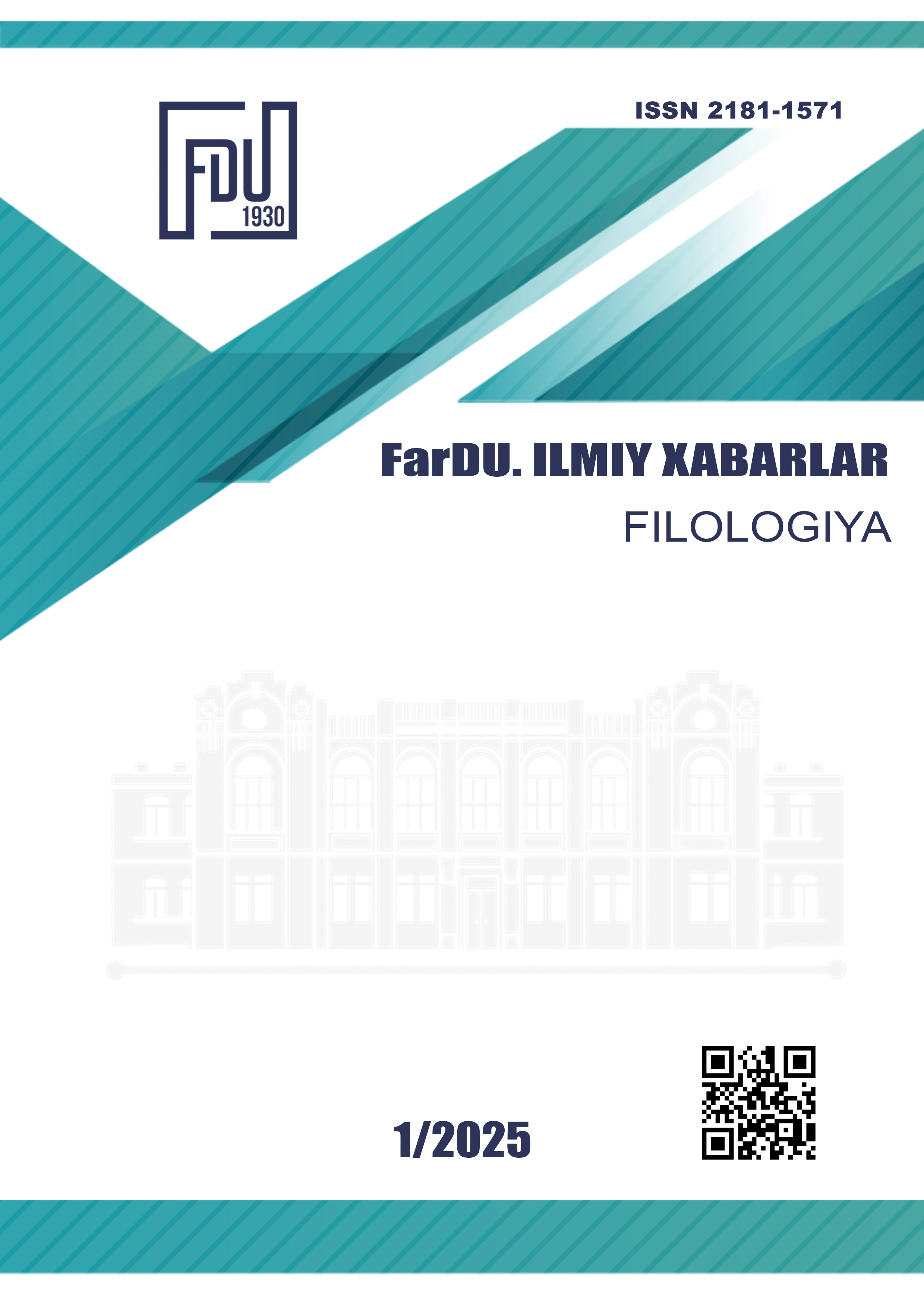CONTENT, FORM AND MEANS OF DEVELOPING STUDENTS’ READING SKILLS IN ENGLISH CLASSES
Keywords:
communicative competence, cognitive linguistics, lexical analysis, morphological analysis, semantic analysis, syntactic analysis, technical vocabulary.Abstract
This study explores the cognitive and lexical characteristics of communicative reading competence through a combination of qualitative and quantitative methods. Findings reveal that communicative competence is often developed through the use of linguo-didactic methods that develop reading skills to improve comprehension. Learning a foreign language for professional purposes makes it necessary to learn terms related to this field. The morphological complexity, semantic relationships, and syntactic roles of these terms underscore their importance in technical communication. Educational exercises targeting these features can improve terminological competence, while professionals can benefit from a deeper understanding of these dimensions for better communication and documentation practices.
References
Keene, E.O& Zimmerman,S (1997). Mosaic of thought: Teaching comprehension in a reader’s workshop. Portsmouth, New Hampshire: Heinemann.(p.21).
Tovani,C.(2000) I read it, but I don’t get it: Comprehension strategies for adolescent readers. Portland, Maine:Stenhouse.(p.64).
Harvey,S& Goudvis,A (2000). Strategies that work: Teaching comprehension to enhance understanding. York, Maine: Stenhouse.(p.21).3. Dubuc, R. (1997). Terminology: A Practical Approach. Canada National Library.
Budileva, V. S. (2002). Characteristics of Terms as a Basis for Their Classification. M.: Osnova.
Pearcey, Nancy. "Nancy Pearcey". Archived from the original on October 17, 2013. Retrieved July 19, 2013.
Davlataliyeva Z. The Interaction between Fluency, Vocabulary and Comprehension for improving reading skill. International Journal of Language Learning and Applied Linguistics Volume: 02 Issue: 04 April-2023 ISSN: 2835-1924 B:87-89
Davlataliyeva Z. Pedagogical needs and usefulness of reading fluency for teaching foreign language. International Journal of Language Learning and Applied Linguistics Volume: 02 Issue: 04 April-2023 ISSN: 2835-1924 B:84-86
Davlataliyeva Z. Technical translation as a significant communicational bridge for reading comprehension. In an International Educators Conference, Volume: 02 Issue: 22 April-2024 ISSN: 2835-396x B:109-113
Nicole, K. (2010). Integrating Multi-Word Terms in Terminology Management Systems: A Case Study. Wissenschaftlicher Verlag Trier.
Downloads
Published
Issue
Section
License
Copyright (c) 2025 Scientific journal of the Fergana State University

This work is licensed under a Creative Commons Attribution-NonCommercial-NoDerivatives 4.0 International License.
How to Cite
Most read articles by the same author(s)
- Zarina Usmonova, TRANSLATION METHODS AND FEATURES OF INDIRECT TRANSLATION IN "THE MARTIAN CHRONICLES" BY RAY BRADBURY , Scientific journal of the Fergana State University: No. 1 (2023): Scientific journal of the Fergana State University (Exact and natural sciences)
- , TRANSLATION METHODS AND FEATURES OF INDIRECT TRANSLATION IN "THE MARTIAN CHRONICLES" BY RAY BRADBURY , Scientific journal of the Fergana State University: No. 2 (2023): Scientific journal of the Fergana State University (Social humanities sciences)
- , , PEDAGOGICAL PRINCIPLES OF DEVELOPING SPIRITUAL COMPETENCE OF HIGH CLASS STUDENTS , Scientific journal of the Fergana State University: No. 4 (2024): Scientific journal of the Fergana State University (Social humanities sciences)
- Zarina Davlataliyeva, METHODS OF ORGANIZING ACTIVITIES FOR DEVELOPING STUDENTS' LEARNING COMPETENCE , Scientific journal of the Fergana State University: No. 5 (2025): FarDU. Ilmiy xabarlar jurnali (PEDAGOGIKA)

